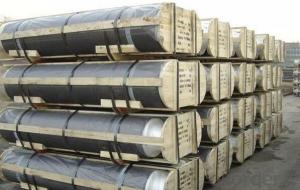When it comes to choosing the right material for various applications, especially in the field of metallurgy and electrochemistry, the options can be overwhelming. One of the most common materials used in these industries is copper, but what if there’s a better alternative? That’s where graphite electrodes come into play. But before we dive into the advantages of graphite electrodes, let’s talk about why copper has been the go-to choice for so long.
Copper has been a popular choice due to its excellent electrical and thermal conductivity. It’s also ductile, which means it can be easily shaped into various forms. However, there are some downsides to using copper. It’s expensive, and its conductivity can be affected by impurities. Plus, it’s not the most environmentally friendly option out there.
Now, let’s switch gears and talk about graphite electrodes. Graphite is an allotrope of carbon, which means it’s made up of the same element as diamond, but in a different arrangement. This gives graphite some unique properties that make it an attractive alternative to copper.
First and foremost, graphite electrodes are more cost-effective than copper. This is a huge advantage for industries that rely on large quantities of electrodes for their processes. The cost savings can add up quickly, especially when you consider the long-term use of these materials.
Another advantage of graphite electrodes is their superior electrical conductivity. While copper is known for its conductivity, graphite can actually hold its own in this department. In fact, some high-purity graphite electrodes can have electrical conductivity that rivals or even surpasses that of copper.
But it’s not just about the conductivity. Graphite electrodes also have better thermal conductivity than copper. This means they can handle higher temperatures without losing their structural integrity. This is particularly important in applications where high temperatures are involved, such as in the production of steel or other metals.
Speaking of high temperatures, graphite electrodes are also more resistant to oxidation than copper. This means they can last longer in environments where they’re exposed to high heat and oxygen levels. The longer lifespan of graphite electrodes can result in less frequent replacements, which can save both time and money in the long run.
Let’s not forget about the environmental aspect. Graphite is a more sustainable and environmentally friendly option compared to copper. The production process for graphite is less energy-intensive and generates less waste. Plus, graphite is more abundant in the Earth’s crust, making it a more readily available resource.
Now, you might be wondering about the mechanical properties of graphite electrodes. Well, they don’t disappoint in this area either. Graphite has a high tensile strength, which means it can withstand a lot of pressure without breaking. This makes it ideal for applications where durability and strength are required.
But what about the installation and maintenance of graphite electrodes? Surprisingly, they’re easier to install and maintain than copper. The lighter weight of graphite makes it easier to handle and transport, and it also requires less energy to process. This can result in a more efficient workflow and reduced downtime for businesses.
In terms of safety, graphite electrodes have a lower risk of sparking compared to copper. This can be a significant advantage in industries where safety is a top priority, such as in the chemical or oil and gas sectors.
One of the most exciting aspects of graphite electrodes is their potential for customization. With advances in technology, graphite electrodes can now be tailored to meet the specific needs of various industries. This means that businesses can have electrodes that are designed to perform optimally for their unique applications.
So, what’s the verdict? Are graphite electrodes the right choice for you? It depends on your specific needs and requirements. However, considering their cost-effectiveness, superior conductivity, resistance to oxidation, environmental benefits, mechanical strength, ease of installation and maintenance, and safety features, it’s hard to ignore the advantages that graphite electrodes have to offer.
In conclusion, while copper has been a reliable choice for many years, the rise of graphite electrodes as a viable alternative is undeniable. They provide a compelling case for industries looking to optimize their processes, reduce costs, and minimize their environmental impact. As technology continues to advance, we can expect to see even more benefits and applications for graphite electrodes in the future.

